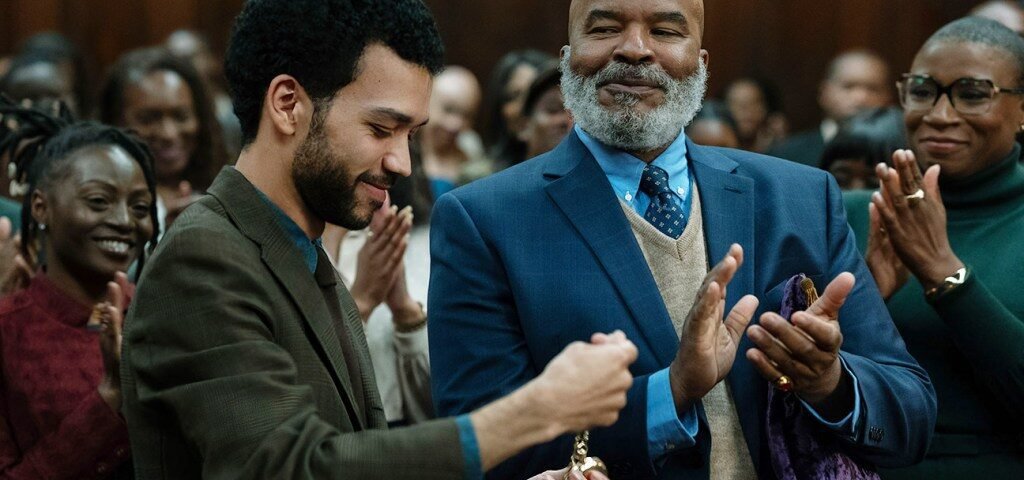


‘A New Kind of Wilderness’ Review: A Small but Stirring Portrait of a Family in Transition
February 1, 2024


‘Look Into My Eyes’ Review: Lana Wilson’s Doc About New York City Psychics Doesn’t See Much
February 2, 2024The first feature from writer-director Kobi Libii revolves around a young artist recruited to be part of a group whose mission is to ease white people’s discomfort.
The American Society of Magical Negroes
Anything but magical.
In recent years, there have been many films about what it’s like to be a Black person in America today. In the wake of Black Lives Matter, diversity onscreen became a priority. But in the years since, many filmmakers have tried to capture the magic of the work of Jordan Peele, critiquing prejudice while keeping his Black characters at the center. It’s a difficult balancing act, marrying comedy and tragedy to yield something truly poignant and unique. Kobi Libii’s debut feature, The American Society of Magical Negroes, struggles to bring its tricky premise to life.
The American Society of Magical Negroes is dedicated to soothing white people’s discomfort with kindness, calming anecdotes and a big dose of magic. Run by the ethereal Dede (Nicole Byer), the Society has been working in secret for decades, operating out of carefully concealed headquarters. There, a collection of Black people from all walks of life study the history and technique of Magical Negroes under the tutelage of Gabbard (Aisha Hinds). Soon, Aren gets his first “client,” Jason (Drew Tarver), a young tech guy working for a social media company called MeetBox. He’s not feeling confident in his work and it’s Aren’s job to make him feel good about himself.
This tonal issue comes to the forefront with Lizzie (An-Li Bogan), a coworker at MeetBox that Aren has a crush on. As it turns out, his “client,” Jason, likes her too; per the rules, Aren must give up his crush and set them up. The love triangle is the central conflict of the film and the catalyst for Aren to start questioning how much he strains to accommodate white people. But there really isn’t anything funny about having to give up on a woman you have a deep connection with because it’s your job to make white people happy. It’s a depressing situation that drags the whole film down with it. Which is a shame, because Smith is a gifted romantic lead. Aren and Lizzie’s love story is genuinely sweet and their scenes together are the best in the film.
Though it’s clear that first-time director Libii was intending for the joke to be on white people, the Black characters are drawn with so much misery and self-loathing that the humor rarely lands. As a mentor, Roger is encouraging Aren to shrink himself when he’s done that his entire life already. Where’s the fun in having magic if you’re the one person who can’t benefit from it? Late in the film, the narrative tries to reconcile this, but it’s too little too late.
Smith carries the film with his charm alone, making the unpleasant experience somewhat bearable. But one performance isn’t enough to save a film, and the Black actors around him are saying lines so retrograde that it almost hurts to hear them.





